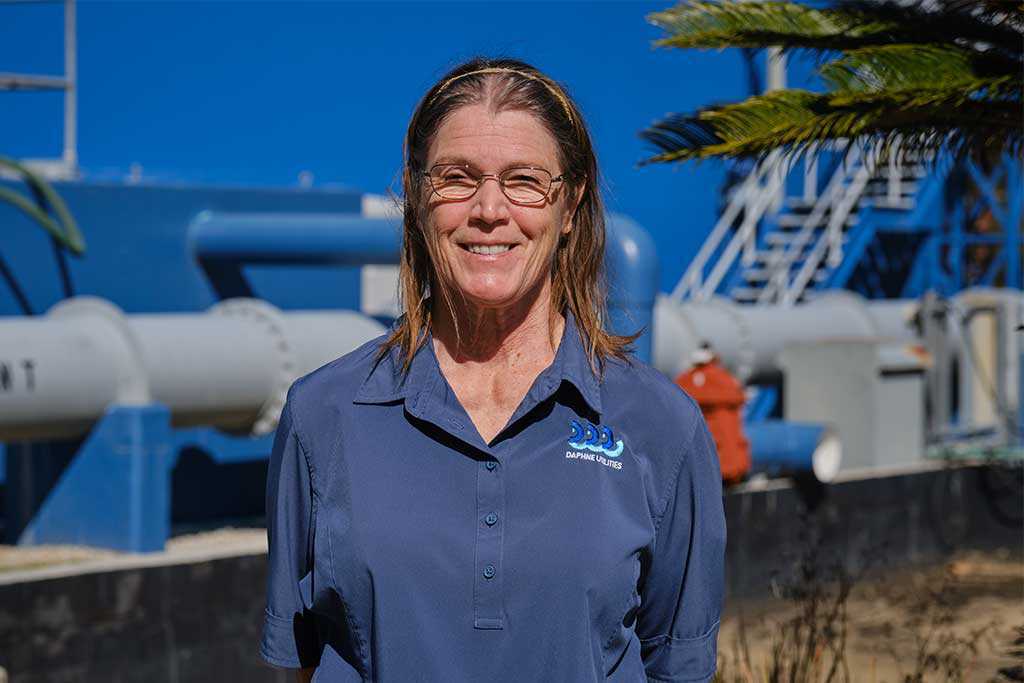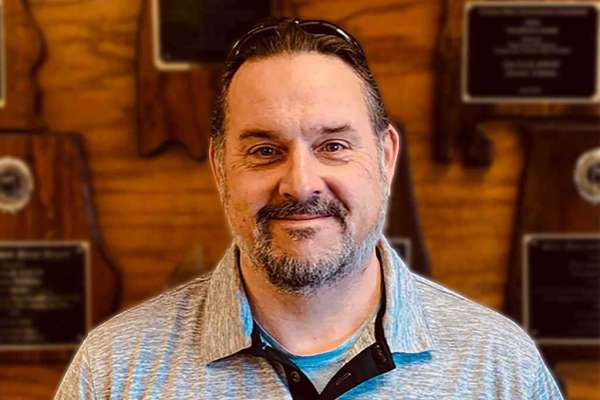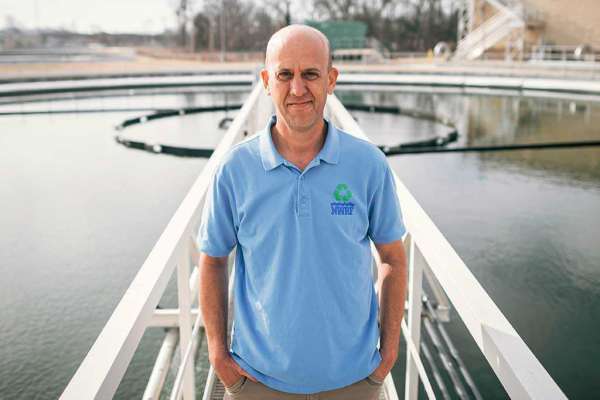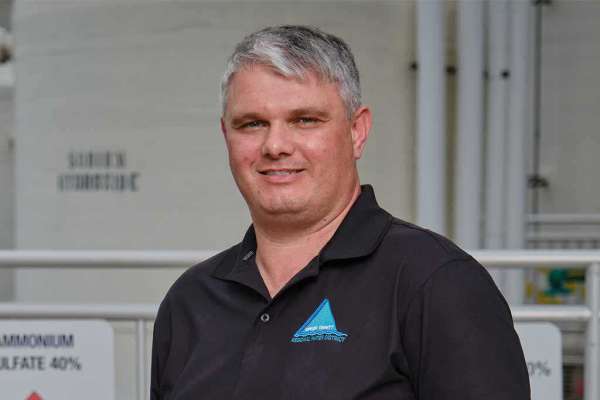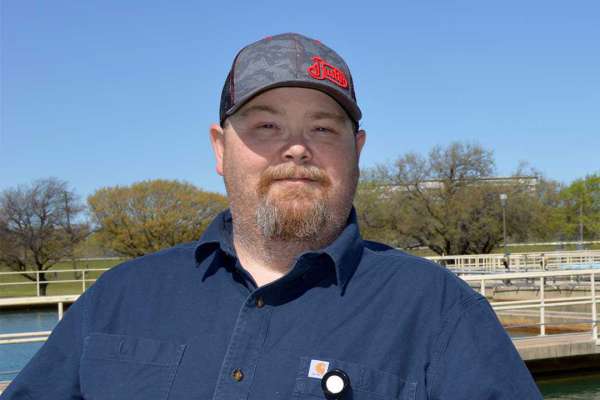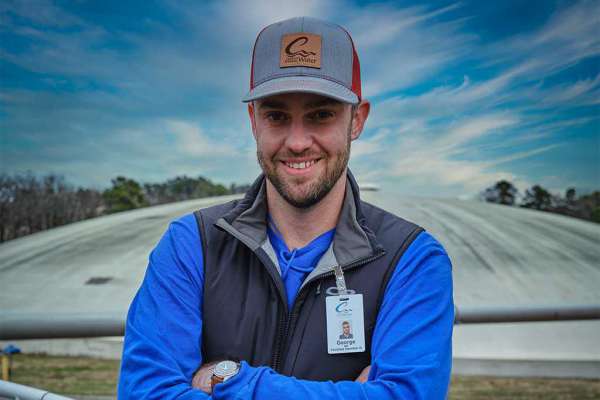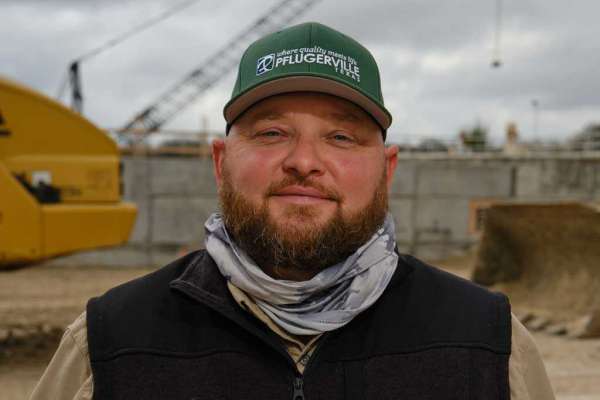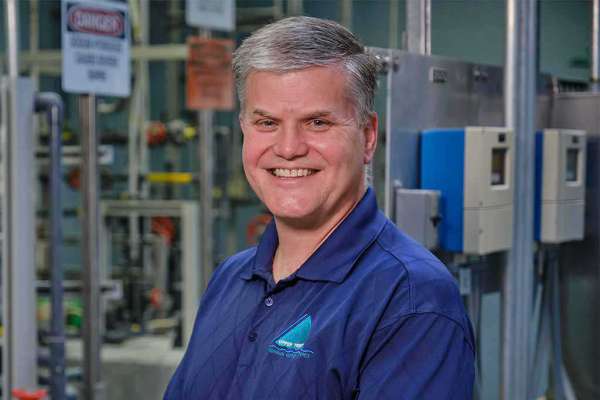Thanks to the behind-the-scenes efforts of water and wastewater operators across the country, clean, safe water continued flowing – even amid a global pandemic. Garver launched the Behind-the-Scenes Operators Initiative to give an inside look at what it takes to supply our communities with reliable water services.
More than four decades providing safe, clean water
After 43 years as an operator, Sharon has worked all over the country, from New England to Texas and now Daphne, Alabama. With so many years of experience, it’s not a surprise that she’s seen it all when it comes to operations. Sharon’s career has included both water and wastewater treatment, but she primarily focuses on wastewater treatment these days. Though, she does have operator certifications in both. So, what kicked off a 43-year long career that’s still going strong? A love of science and the day-to-day challenges that operators face.
Sharon’s day-to-day requires her to do what she loves – solve challenging problems and make daily operations better and more efficient. Because an efficient plant keeps a community continually supplied with safe, high-quality water. So, every day Sharon arrives to her plant early, checks in with the on-call operator, checks water quality levels, and makes sure all the processes are still running at peak efficiency. Because this is part of what Sharon loves, evaluating the treatment and biological side of processes and troubleshooting solutions to whatever concerns arise.
However, this past year has presented new challenges for Sharon and her team. Part of what Sharon loves to do is interact with her staff for training and support, particularly getting her younger operators ready for certification exams. But COVID social distancing requirements have pushed her to find new ways to assist her team, whether that is through virtual training or socially-distanced interactions.
Additionally, the pandemic has changed the way she and her team receive the necessary deliveries to maintain their equipment, mostly that the frequency has decreased because of COVID protocols for shipping centers. Her team has also had to work shifts with less staff due to staff getting sick and social distancing protocols requiring less staff on duty at the same time.
Not only have their operations changed some, but Sharon has noticed a change in the flows coming into the plant. Early in the pandemic, Alabama shut down a lot of businesses. This caused a dramatic change in where the daily flows were coming from and the amount. With restaurants and other businesses shutting down, the flow they normally added to the system was gone. And treatment staff, like Sharon and her team, can notice changes in flow and where they’re coming from.
The biggest challenge they had to face – an increase in wipes, which can cause lift station pumps to become clogged. Collections staff closely monitors the run times at the stations to determine if a pump is clogging or if there is an overflow that triggers an investigation to see if it’s clogged. When those pumps become clogged with wipes and such, a worker must clean them quickly to prevent backup and damage to the system.
To add to the changes in flow, Sharon’s team also experienced one of the busiest hurricane seasons on record. Running a plant like Daphne’s Water Reclamation Facility, located right along the Gulf Coast, means being prepared to weather a hurricane. Sharon directs her team to prepare standby generators and transition the plant to standby power ahead of time and make sure everything is secure and tied down or cleared off the ground. Once the storm hits, Sharon and her team transition all processes to manual and override automation to handle the large changes in flow that a hurricane can produce. She also has all her staff remain available and ready, even if not at the plant, in case they need the added staff support.
During a storm, the flows to the facility may exceed the capacity of fine screens, which reside at the beginning of the treatment system to catch debris that enters the plant. When the flows exceed screen capacity, they require a diversion of excess flow to a manually cleaned bar rack (to also catch debris) that must be frequently cleaned. This requires someone to remain at this open area throughout the storm.
But while the pandemic and hurricane season have thrown constant challenges at Sharon, she’s continued to lead her team and guide them through all of it. Her leadership has remained unchanged, much like the quality of service she and her team provide. Because in Sharon’s words, “We’re here 24/7, and we’re facing challenges that these plants weren’t originally designed for. This means we’re going out at all times of night and day to fix them. We treat whatever comes from homes, business, you name it.” Sounds like the people in Daphne, Alabama are in good hands with this team of dedicated professionals.

